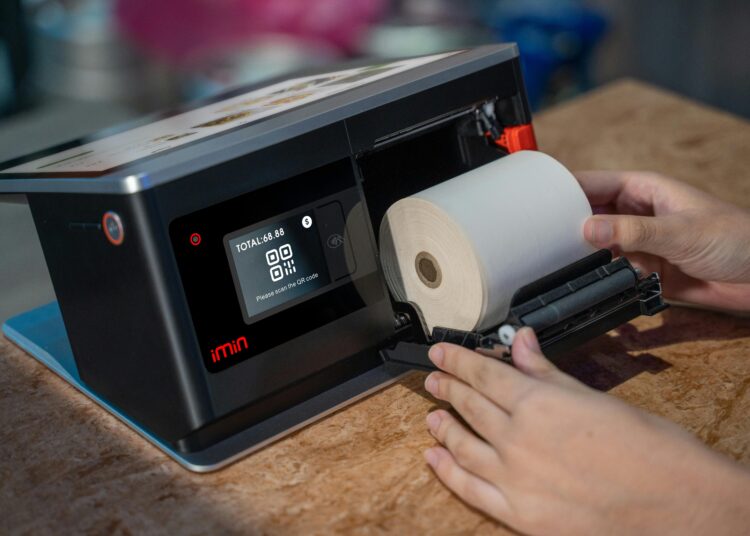Imagine walking into a store that seems to know you better than your best friend. Welcome to the world of smart stores, where technology meets retail in a dazzling dance of convenience and innovation. These high-tech havens are revolutionizing the shopping experience, making it faster, easier, and a whole lot more fun.
What Is a Smart Store?
A smart store uses technology to create a seamless shopping experience. These retail environments incorporate sensors, mobile apps, and data analytics. Enhanced customer interaction becomes possible through these tools.
In smart stores, artificial intelligence analyzes shopping patterns and preferences. This analysis helps retailers optimize inventory and personalize marketing. By leveraging real-time data, stores can make informed decisions.
Customers experience convenience and efficiency when they shop. Smart checkout options eliminate long lines. Mobile payments simplify transactions, allowing shoppers to pay quickly. These innovations save time and increase satisfaction.
Many smart stores feature interactive displays. Shoppers can access product information and special offers. Digital signage enhances communication, promoting sales and events effectively.
Automation plays a critical role in smart store operations. Robots may handle restocking or provide assistance to customers. This automation reduces labor costs and improves efficiency.
Emerging technologies, such as augmented reality, offer unique experiences. Shoppers might virtually try on products before purchasing. Engaging experiences often lead to higher conversion rates.
Data security remains a priority. Smart stores must implement robust measures to protect customer information. Trust fosters customer loyalty and enhances brand reputation.
Smart stores redefine retail by integrating technology for a better shopping experience. They prioritize convenience, efficiency, and customer engagement, setting new standards in the retail landscape.
Key Features of Smart Stores
Smart stores incorporate various technological innovations that enhance the shopping experience. The utilization of advanced systems sets these retail environments apart.
Automated Checkout Systems
Automated checkout systems streamline the payment process. Shoppers can enjoy the convenience of avoiding long lines while utilizing quick scan-and-go options. Facial recognition technology often assists in rapid identification, further speeding up transactions. Mobile apps also facilitate payments, enabling consumers to complete purchases from anywhere within the store. This efficiency leads to a significant increase in customer satisfaction and encourages repeat visits.
Intelligent Inventory Management
Intelligent inventory management optimizes product availability and minimizes waste. Retailers leverage data analytics to track sales trends and forecast demand accurately. Real-time inventory insights allow for timely restocking and reduce stockouts. Automated systems can trigger reorders when inventory levels drop below predefined thresholds. Such proactive measures enhance operational efficiency and ensure a smooth shopping experience, ultimately improving profitability.
Benefits of Smart Stores
Smart stores offer a range of advantages that significantly impact both customers and retailers. Increased satisfaction and efficiency are just a few of the key benefits.
Enhanced Customer Experience
Smart stores prioritize customer engagement through personalized interactions. Technologies like mobile apps and interactive displays provide shoppers with product information instantly. Customers enjoy seamless checkout options that eliminate long wait times. Enhanced experiences often lead to higher customer satisfaction and loyalty. Personalized marketing strategies based on shopping preferences deliver targeted recommendations. With these innovative solutions, customers feel valued and understood, ultimately transforming shopping into a more enjoyable activity.
Increased Operational Efficiency
Operational efficiency receives a notable boost from smart store technologies. Automated inventory management reduces waste and ensures product availability. Retailers gain real-time insights into stock levels, enabling prompt restocking actions. Automation solutions tackle tasks like customer assistance and product restocking, freeing up employees for more complex responsibilities. Efficient data analytics track sales trends and forecast demand accurately. Overall, smart stores enhance productivity, lower labor costs, and streamline operations, contributing positively to profitability.
Technologies Behind Smart Stores
Smart stores leverage various advanced technologies to enhance the shopping experience. These innovations create a seamless integration of convenience and efficiency for customers.
Internet of Things (IoT)
Internet of Things devices connect various elements of the shopping environment. Sensors monitor inventory levels in real-time, ensuring products are available when shoppers need them. Smart shelves, equipped with weight sensors, automatically detect when stock is low, prompting timely restocking. Additionally, IoT technology enables location tracking, guiding customers to products swiftly. These features not only improve the shopping experience but also optimize operational management, leading to increased productivity.
Artificial Intelligence (AI)
Artificial Intelligence plays a crucial role in personalizing customer interactions within smart stores. AI algorithms analyze purchasing patterns and individual preferences, allowing retailers to tailor marketing strategies effectively. Personalized recommendations enhance customer satisfaction and drive sales, increasing repeat visits. Moreover, AI helps predict trends, which informs inventory management and minimizes waste. Automation facilitated by AI streamlines tasks, freeing employees to focus on delivering exceptional service. Overall, these intelligent systems redefine shopping by making it more relevant and enjoyable for consumers.
Examples of Smart Stores
Smart stores are transforming the retail landscape through various innovative implementations. They showcase how technology can enhance the shopping experience and operational efficiency.
Major Retail Chains
Amazon Go leads the way with its cashier-less model, allowing customers to shop and walk out without traditional checkout processes. Walmart utilizes AI for inventory management, ensuring products remain stocked based on real-time data analytics. Target integrates mobile apps for personalized promotions while enhancing in-store experiences with augmented reality features. Best Buy focuses on smart technology displays to help customers make informed purchasing decisions. These major retail chains leverage advanced technology to deliver seamless shopping experiences and improve operational management.
Innovative Startups
Zebra Technologies introduces smart shelves that adjust pricing in real-time, enhancing consumer engagement and dynamic pricing strategies. Standard Cognition offers AI-driven checkout solutions that allow shoppers to enter stores, grab items, and exit without needing to scan products. Trigo provides a similar solution, utilizing sensors and computer vision for a frictionless checkout experience. MishiPay, an emerging player, develops mobile checkouts that empower customers to scan items and pay via their smartphones. These startups exemplify how emerging technologies redefine retail, making shopping faster and more intuitive.
Conclusion
Smart stores are revolutionizing the retail landscape by integrating cutting-edge technology to enhance the shopping experience. With features like automated checkout systems and personalized marketing strategies, they cater to the evolving needs of consumers. As retailers adopt these innovations, they’re not only boosting customer satisfaction but also improving operational efficiency and profitability. The future of retail lies in these intelligent environments, where convenience and engagement are prioritized. Embracing smart store technology is essential for retailers aiming to stay competitive and meet the demands of today’s savvy shoppers.










